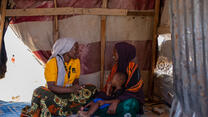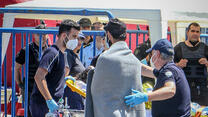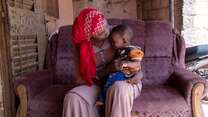Europe is still reeling from the largest refugee crisis it has experienced since World War II.
During the first half of 2015 Greece saw an average of 3,000 refugees arriving daily by sea onto the island of Lesvos. While the number of new arrivals—fleeing war in Syria, conflicts in Iraq, Afghanistan and elsewhere—into Europe through Greece has ebbed significantly since the closing of the Balkan route and the Turkey-EU deal on March 20th 2016, Greece now faces new challenges in meeting the needs of populations who await asylum in Greece, relocation to another European country, or face voluntary repatriation. These challenges come at a time when Greece continues to struggle economically. NGOs have stepped in to deliver blanket cash assistance across an increasing number of refugee sites in Greece since May 2016. As organizations plan to enter a new phase of scaled response, this research report takes stock of implementation thus far, documents lessons learned throughout implementation, and considers design options for a coordinated and coherent cash approach across NGOs, including planning for eventual handover to the Greek national social welfare system.
KEY FINDINGS
- There remains a significant learning curve for delivering cash in Greece. Obstacles to achieving scale effectively and efficiently include NGO access to sites, lack of site outflow management, lengthy asylum registration processes and inconsistent documentation; and the time it takes to effectively customize an FSP platform for efficient payments.
- High-quality cash delivery requires substantial organizational capacity, technical expertise and experience where no single agency can deliver cash across sites.
- Harmonization is required to effectively scale to full coverage, and must be informed by lessons learned.
- There is a contradiction between the Government’s desire to have NGOs provide full coverage of high-quality cash assistance quickly and simultaneously, and the pace by which the GoG’s systems and procedures support this drive in a coordinated manner.
- Greece is a highly politicized operating environment which can at times have a greater impact on programmatic decisions than evidence and technical findings.
- There has been a rush to coordinate without the requisite systematic learning or governance structure to underpin technical coordination.
- Consortia (and in some cases an Alliance model) have been shown to foster greater horizontal accountability, MEAL, and mechanisms for advocacy, fundraising and planning through a common voice, yielding significant gains in research, learning, negotiations with providers, government, etc.
- Cash consortia in Somalia, Iraq, and Lebanon demonstrate the value of harmonizing key aspects of delivery while leveraging the diverse technical strengths of organizations.
- Beneficiaries are generally very grateful to the Government and people of Greece and NGOs for the assistance they receive. Their feedback on cash programming is constructive and they should be consulted regularly to improve the design of cash assistance in Greece.
KEY RECOMMENDATIONS
- There is a strong rationale for harmonizing cash implementation through a coherent approach to scale effectively and efficiently, as an uncoordinated approach is inefficient for NGOs and detrimental for beneficiaries.
- Consider establishing a cash consortium or alliance of implementing agencies, and create a structure for successful harmonization with a governance structure fit for purpose.
- Prioritize technical decision-making based on evidence and program learning, and adopt a minimum standards approach.
- Eliminate unnecessary duplication of roles, and determine centralized roles based on strengths and capacities.
- Centralize and consolidate government interface and advocacy.
- Centralize and consolidate MEAL & data management.
- Do not rush toward one FSP, but use competition to determine the best FSP solution for scaling efficiently and effectively in the Greek context with a more nuanced bid criteria and specifically adapted technical requirements and specifications.
- Finally, since Greece remains a fluid context, it is recommended that as organizations start or scale-up cash assistance, lessons learned are systematically captured on a regular basis, shared and used to collectively improve program delivery.



